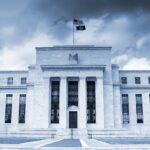Sens. Elizabeth Warren, a member of the Senate Banking, Housing, and Urban Affairs Committee; John Hickenlooper; Jacky Rosen; and Sheldon Whitehouse have sent a letter to Federal Reserve Chair Jerome Powell, calling on the Fed to reverse its interest rate hikes that have driven mortgage rates to 20-year highs and have put affordable housing out of reach for too many Americans.
“High interest rates have aggravated the country’s persistent crisis of housing access and affordability. Mortgage rates have risen to 20-year highs in the past year—a direct result of the Federal Reserve’s campaign of aggressive hikes to the federal funds rate … As the Fed weighs its next steps in the new year, we urge you to consider the effects of your interest rate decisions on the housing market and to reverse the troubling rate hikes that have put affordable housing out of reach for too many,” wrote the senators in their letter.
Over the past year, rate hikes by the Fed have driven mortgage rates to the highest levels in 23 years. The average rate on the 30-year fixed-rate mortgage rose to 8% in mid-October, a drastic change from rates as low as 3% in 2021.
According to Freddie Mac’s latest Primary Mortgage Market Survey (PMMS), the 30-year fixed-rate mortgage (FRM) averaged 6.63% for the week ending February 1—still well above the mortgage rates paid by homeowners over at least the past decade.
According to the Consumer Financial Protection Bureau (CFPB), these rates have significantly increased home purchasing costs for consumers: from December 2021 to December 2022, average monthly payments on 30-year fixed-rate mortgages rose from $1,400 to $2,045, a 46% increase. Today, those payments have jumped to $2,883.
In their letter, the senators highlighted how interest rates have worsened the housing supply crisis. In response to high interest rates and higher construction costs, developers have opted either to pivot to developing smaller properties or have chosen to pull back on construction. Additionally, the existing supply of homes has become less available to new buyers, as current homeowners are reticent to move and trade in their lower rates for a higher rate on the mortgage needed to purchase a new home.
The senators also noted that the Fed’s rate hikes have driven up rental prices, which are astonishingly high compared to pre-pandemic levels. High interest rates contribute to higher rent costs in several ways: in addition to keeping renters in their units and constricting the supply of new rental units by making construction more expensive, high interest rates mean higher mortgage rates for landlords, who may pass off these costs in the form of rent hikes for their tenants.
Just last week, for the fourth meeting in a row, the Federal Reserve’s Federal Open Market Committee (FOMC) made the call that their best course of action was to do nothing with interest rates, a developing trend as the Committee chose to hold rates steady at 5.50% at their last three meetings.
The most aggressive series of rate hikes in history ended in June when the committee held off on raising rates due to a litany of positive factors which consisted of 11 straight rate hikes over 15 months. Since the post-pandemic rate hikes began, the FOMC raised rates in March 2022 (+25 points), May 2022 (+50 points), June 2022 (+75 points), August 2022 (+75 points), September (+75 points), November 2022 (+75 points), December 2022 (+50 points), February 2023 (+50 points), March 2023 (+25 points), May 2023 (+25 points), June 2023 (+0 points), July (+25 points), September (+0 points), November (+0 points), December (+0 points), and January (+0). This is equivalent to a rise of 5.00 percentage points in under two years.
“The ever-growing affordability crisis places a disparate burden on the shoulders of Black and Hispanic households, who own homes at rates 28.6 percentage points and 25.8 percentage points below white households respectively—disparities rivaling the racial homeownership gaps of the Jim Crow era … Homeownership is a well-documented means of wealth creation, and the further exclusion of historically disenfranchised groups from home-ownership will only widen our country’s pronounced racial wealth gap,” continued the senators in their letter.
Given their concerns about the impacts of the Fed’s monetary policy on families struggling with the cost of housing, the senators are urging the Fed to reverse its aggressive rate hikes to the federal funds rate in 2024.
Sen. Warren has been ringing the alarm bells about the dangers of Chair Powell’s interest rate hikes:
- In July 2023, Sen. Warren sent a letter to Chair Powell, raising concerns about the disproportionate impact of the Fed’s monetary policy amid rising unemployment for Black workers.
- In May 2023, Sen. Warren led lawmakers in a letter to Chair Powell, calling on the Fed to pause interest rate hikes and respect its dual mandate of maximum employment and price stability, particularly in the wake of recent turmoil in the banking system following the collapses of Silicon Valley Bank, Signature Bank, and First Republic Bank. The lawmakers expressed serious concerns that the Fed’s monetary policy strategy of more rate hikes could trigger a recession, throw millions out of work, and crush small businesses.
- In March 2023, at a hearing of the Senate Banking, Housing, and Urban Affairs Committee, Sen. Warren questioned Chair Powell on the Fed’s monetary policy plan and its projection that the unemployment rate will rise sharply to 4.6% by the end of the year if the Fed continues to raise interest rates. Sen. Warren highlighted that the Fed’s projections suggest that nearly two million people will lose their jobs, and that history shows that the Fed has a poor record of containing moderate increases in unemployment.
- In November 2022, Sen. Warren and Rep. Madeleine Dean led their colleagues in sending a letter to Chair Powell, expressing concern and seeking answers about the Fed’s most recent economic projections, its intentions to continue to raise interest rates at a rapid pace, and its disturbing warning to American families that they should expect “pain” in the coming months.
- In July 2022, Sen. Warren published an op-ed in the Wall Street Journal warning that the Fed’s decision to aggressively raise interest rates risks triggering a devastating recession.
- In June 2022, at a hearing of the Senate Banking, Housing, and Urban Affairs Committee, Sen. Warren called out Chair Powell for the Fed’s announced interest rate increases that wouldn’t address the key drivers of inflation. Chair Powell confirmed that the Fed’s interest rate increases will not bring down gas and food prices, two of the biggest drivers of inflation.
Click here to read the full letter from the senators to Federal Reserve Chair Jerome Powell.





